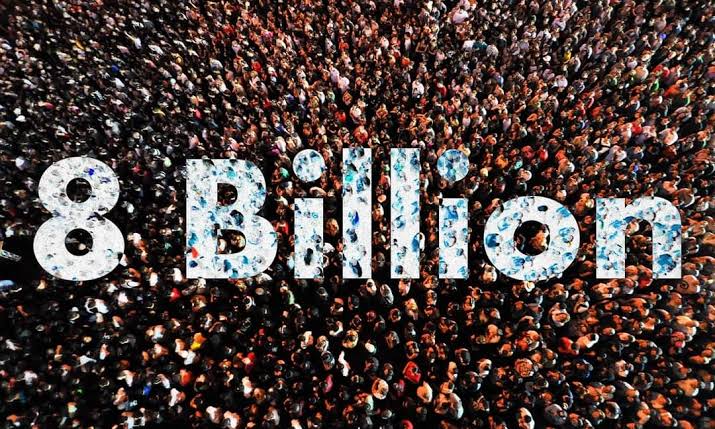
Faith Nyasuguta
The global population has surpassed 8 billion, as revealed by the U.S. Census Bureau, with increased lifespans offsetting declining birth rates. Still, the world population growth continues a long-term trend of slowing down.
The bureau notes the milestone was likely reached on September 26, although the exact date may vary due to disparities in how countries count their populations- or not at all. Many lack systems to record births and deaths.The United Nations had estimated this threshold 10 months earlier.
Factors contributing to the population increase include longer life expectancy, pushing the global median age from 32 to an expected 39 by 2060. Despite the continued growth, the pace has slowed since the rapid doubling of the population from 1960 to 2000.
Nations such as Canada have been ageing with declining older-age mortality, while countries such as Nigeria have seen dramatic declines in deaths of children under 5.
Fertility rates, or the rate of births per woman of childbearing age, are meanwhile declining, falling below replacement level in much of the world and contributing to a more than 50-year trend, on average, of slimmer increases in population growth.
The replacement level, the minimum number of births required to maintain a stable population, is 2.1.
In contrast, however, some nations continue to witness significant declines in child mortality rates.
Currently, nearly three-quarters of people live in countries with fertility rates at or below this level, impacting population growth.

Countries like India, Tunisia, and Argentina have fertility rates around replacement levels, while Brazil, Mexico, the U.S., and Sweden have lower rates. Notably, China, South Korea, and Spain have very low fertility rates.
Some countries, including Israel, Ethiopia, and Papua New Guinea, still exhibit higher-than-replacement fertility rates. Africa stands out, with about 4% of the global population residing in countries with fertility rates above 5.
Projections indicate a continued decline in global fertility rates through 2060, with no country expected to have a rate exceeding 4 by that time, according to the Census Bureau.
RELATED:




